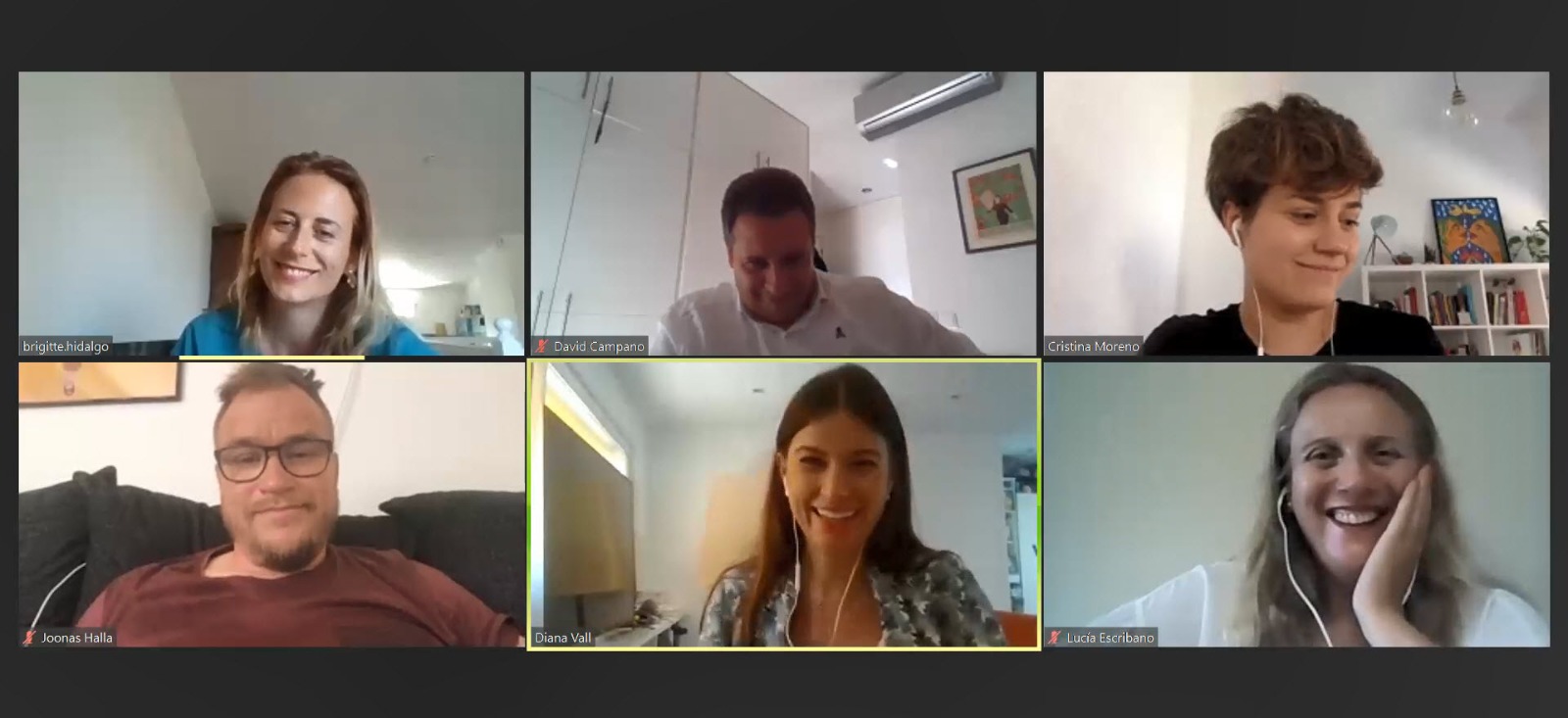MARCO, the international communication agency based in Spain, continues this week with its programme of sectorial webinars to analyse the communication challenges in the COVID-19 era. A panel of experts made up of representatives from Tourism of Finland, Tourism of Mallorca, the online travel agency Weekendesk and the Professional Association of Air Traffic Controllers, and moderated by Diana Vall, General Director of the communication consultancy MARCO, discussed the challenges that the tourism sector is facing due to the outbreak of COVID-19. Among the general restraints on tourism the need to adapt based on the new habits of holidaymakers was identified as they will now be focused on finding alternatives that comply with health and safety measures and will determine the success of the sector. In fact, according to the study ‘MARCO Post COVID-19 Consumption Habits’, 65% of Spanish people confirmed that compliance with health and safety measures will be the most decisive factor in their choice of destination and accommodation.
“Sustainability and safety have to go hand in hand,” said David Campano, Sales & Marketing Manager of Visit Finland, who stressed that the strategies that Tourism of Finland has been working on for years fits very well with the new needs of travellers. “Our goal has never been to win more tourists, but to have more sustainable travellers coming” he added.
With 70 percent of its territory covered by forest, Finland can rightly boast about its well-established Sustainable Finland programme, which will allow travellers to seek less crowded experiences related to nature and a healthy lifestyle. A practice that can also be discovered online thanks to the ‘Rent a Virtual Finn’ campaign, as explained by Joonas Halla, PR & Media Manager of Visit Finland.
Moreno also underlined that one of the main messages they have to communicate once again is the effectiveness of new security protocols in repositioning travel by air as one of the safest means of transport. He also added, how “We need to value air transport and carry out strong visibility campaigns” that highlight the fundamental role many air routes have played for the transport of food and medical products during confinement.
The new way of communicating about travel
The overall impact of COVID-19 leaves a significant mark on the sector and brings to mind a word that has only been used in exceptional cases: reconstruction. This reconstruction is focused on reputation and credibility. One thing is certain, travel will be different, but that does not mean that people will give up their days off. On the contrary, in the midst of the de-escalation of the lockdown, 63% of Spaniards say they will travel the same or more after confinement, according to the study by the communication consultancy MARCO. The key will be knowing how to make tourists fall in love, not only with dazzling landscapes and historical attractions, but also with environments that awaken confidence and in which they feel protected.
The travel agency, Weekendesk, has been promoting local tourism for more than 15 years. In fact, from their platform, they already noticed the increase in searches since 30 April, long before the Government started on 23 May to encourage people in Spain to book their summer holidays, a date that all experts agree has marked a before and after for the sector.
“At Weekendesk we knew how to anticipate and change our search engine, for example, from less than two hours away from home, we added the option to less than 100km away from home to adjust it with the phases of de-escalation”, explained Brigitte Hidalgo, Weekendesk’s Operations Director. Hidalgo also pointed out that it is very important that the intermediaries work hand in hand with the local destinations, because it will be necessary to propose new ideas and new places to consumers once the quota of the most demanded destinations starts to be exhausted.
Country Brand – key to attracting tourists
This new situation is an opportunity to rethink the construction of new Country Brands, with the promotion of healthy, sustainable and safe destinations as main line of action. The current situation has already created tourism to nearby destinations as the dominant trend that defines the new form of traveling. This has been proven to the extent that 92% of tourists are clear that their next vacation will be to a national destination, according to the study by the communication consultancy, MARCO. It will now also be the opportunity for villages and rural areas to promote themselves as the ideal destinations for less crowded holidays.
Mallorca is prepared to welcome both foreign and Spanish tourists as confirmed by Lucía Escribano, Island Director of Tourism of the Consell de Mallorca, who highlighted that one of the messages of their campaign is, “Mallorca es tan segura como tu casa” (Mallorca is as safe as your home). For its re-launch, Mallorca has also relied significantly on digital communications with actions in social media such as contests and emotive videos.
Escribano added that “The impact of COVID-19 has been low here and we will probably soon move to the new normal. There is a very strong sense of security”. She also explained how they are counting on communications as one of the main sectors to challenge misinformation campaigns and fake news.
The panel of experts concluded that it is essential for the tourism sector to collaborate, together with different destinations, travel agencies and tour operators, as well as airlines and those offering accommodation, in order to emerge stronger from this situation. The commitment to sustainable tourism will continue to be one of the main axes around which confidence and credibility can be recovered as we adapt to the new normality. As demonstrated by MARCO’s study, in this new phase, consumers are demanding more health and safety, respect for the environment, quality, knowledge of how to adapt to different needs, support for employees and commitment to society.




Comments